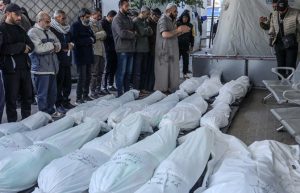France rushes to withdraw troops from Chad following new deadline
3 min readFrance is facing a rapid and unexpected withdrawal of its troops from Chad, following an urgent demand from the Chadian government. Paris had initially planned to start pulling out its forces next week, with a more gradual withdrawal scheduled to conclude by March. However, on Friday, the Chadian authorities sent a formal communiqué, demanding the complete removal of all French personnel from the capital, N’Djamena, by December 31.
This marks a significant blow to France’s presence in the Sahel region, as Chad had been the last stronghold of French influence in West Africa. France had been preparing for a partial pullback, with the first 120 soldiers flown back to France on Friday afternoon. Despite these preparations, the abrupt new deadline has forced Paris to hasten the withdrawal.
The decision to expel French troops follows a rapid deterioration in relations between the two nations, culminating in an escalating series of events. In October, a Boko Haram attack on a military post in the Lake Chad region resulted in the deaths of 40 Chadian soldiers. Following this tragedy, the Chadian government accused France of failing to provide critical support or intelligence to assist its forces. The lack of aid from France soured the relationship, prompting N’Djamena to demand the departure of the French military contingent and the termination of their defense pact.
This diplomatic rupture sparked a wave of protests across Chad, with demonstrators calling for the French military’s exit from the country. The demands grew louder, and the Chadian government, already frustrated with France’s perceived lack of support, complied by ending the defense agreement that had allowed French forces to operate in the country.
The breakdown of the defense pact raises crucial questions about the future of Chad’s security strategy and its alliances in the region. With the French military presence in Chad coming to an end, N’Djamena now faces the challenge of finding alternative sources of support for its security needs. The move also raises concerns about the broader stability of the Sahel region, where other countries have relied on French forces for counterterrorism efforts.
For France, the situation represents a further setback in its strategy for countering militant groups in West Africa. The Sahel has been a focal point for French military operations over the past decade, as Paris has been deeply involved in combating insurgents from groups like Al-Qaeda and Boko Haram, which have destabilized the region. With Chad no longer offering a base for these operations, France may have to reevaluate its military footprint in the region.
The potential withdrawal of French forces from Chad is part of a larger shift in French military strategy in West Africa. Over the past few years, there has been growing discontent with the French military presence in former colonies, fueled in part by accusations of neocolonialism and perceived failures in combatting insurgencies. The loss of Chad as an ally could further isolate France as it looks to maintain its influence in Africa.
Chad’s decision to expel French forces and terminate the defense pact is likely to have far-reaching implications. It could open the door for other foreign powers, such as Russia or China, to fill the void left by the departing French troops. This shift in alliances could alter the dynamics of regional security and influence in the Sahel, where competition for influence is already high.
For now, the French military faces a logistical challenge, with plans for a hasty withdrawal and potential implications for ongoing counterterrorism operations. The situation in Chad underscores the volatility of the region and the shifting alliances that characterize much of the Sahel’s complex geopolitics.
As the end of the year deadline looms, it remains to be seen how Chad will secure its borders and combat growing insurgent threats without French support. The withdrawal marks the end of an era of French military presence in the country, leaving the future of Chad’s defense strategy uncertain.







